Adventures in Democracy

The Turbulent World of People Power

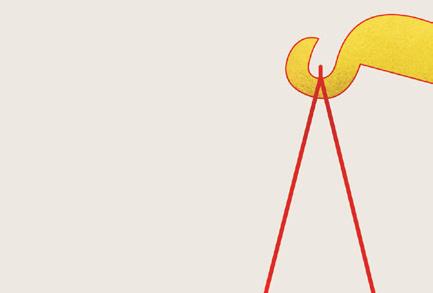
Erica Benner

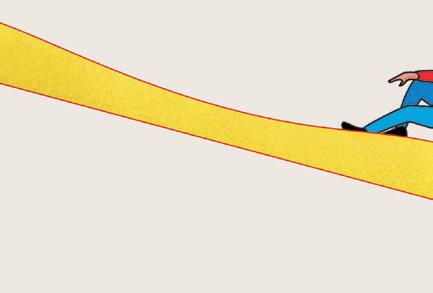



‘Sparkling … a page-turner full of wit and original insight’
GUARDIAN

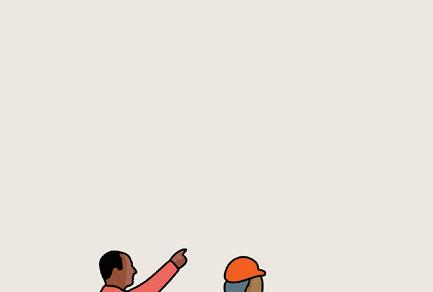



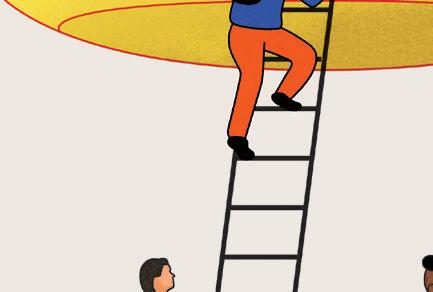



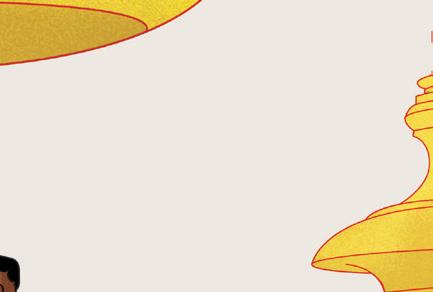








Erica Benner





‘Sparkling … a page-turner full of wit and original insight’














‘A page-turner full of wit, original insight and unassuming erudition . . . a sparkling account of people power through the ages, and how to save it from itself . . . [democracies] are worth fighting for, and Benner’s book is a timely reminder that we can all play our part’ Katja Hoyer, Guardian
‘Essential reading for anyone tempted to be complacent about the survival of democracy in the twenty-first century . . . an invigorating reflection on the tensions in liberal democracy. Benner weaves together personal reflections on life in Japan and Eastern Europe with a nuanced account of ancient philosophies that are all too often caricatured’ Catherine Fletcher, author of The Beauty and the Terror
‘Benner grew up in and has lived and taught in an array of different democracies. She is also a veteran time traveller across two and half millennia of history . . . Using her own life as a backbone for her observations, Benner interrogates democracy as an institution . . Highly stimulating’ Sarah Dunant, Literary Review
‘Engaging, illuminating, and arrives at an opportune moment . An overriding concern is that though democratic norms encourage us to love equality, we tend to want more of it for ourselves than for the rest’ Sanjay Sipahimalani, The Federal
‘Erica Benner lends a personal, familiar touch to a difficult, layered subject. The tone of the narrative and how the chapters unfold are riveting – it is almost as if Benner is sitting down to have a meal with you and engaging in a frank, informal discussion about . . . democracy, its “beginnings and myths”, the “constant struggles” it has faced over the years and the “mortal dangers” it suffers today’ Telegraph India
‘It is written in an astonishingly entertaining way with a very strong narration’ Michael Meyer, Deutschlandfunk Kultur
‘Political philosopher Erica Benner offers an original, highly humanistic analysis focusing on how individuals have interacted organically with democracy . . Benner forensically dissects the strengths and failings of democracy . . . She offers – in a beautifully written account – instructive lessons about the compromises and contradictions that democratic systems have had to grapple with and the questions that informed citizens must ask themselves when considering their political futures’ John Nilsson-Wright, Global Asia
Erica Benner is a political philosopher who has taught at Oxford University, the London School of Economics and Yale. She is the author of Be Like the Fox, which was selected as one of the Guardian’s Best Books of 2017 and shortlisted for the 2018 Elizabeth Longford Prize for Historical Biography. Erica was born in Japan and currently lives in Berlin.
Erica Benner
UK | USA | Canada | Ireland | Australia India | New Zealand | South Africa
Penguin Books is part of the Penguin Random House group of companies whose addresses can be found at global.penguinrandomhouse.com.
Penguin Random House UK
One Embassy Gardens, 8 Viaduct Gardens, London SW11 7BW penguin.co.uk
First published in Great Britain by Allen Lane 2024 Published in paperback by Penguin Books 2025 001
Copyright © Erica Benner, 2025
Penguin Random House values and supports copyright. Copyright fuels creativity, encourages diverse voices, promotes freedom of expression and supports a vibrant culture. Thank you for purchasing an authorized edition of this book and for respecting intellectual property laws by not reproducing, scanning or distributing any part of it by any means without permission. You are supporting authors and enabling Penguin Random House to continue to publish books for everyone. No part of this book may be used or reproduced in any manner for the purpose of training artificial intelligence technologies or systems. In accordance with Article 4(3) of the DSM Directive 2019/790, Penguin Random House expressly reserves this work from the text and data mining exception.
The moral right of the author has been asserted
Typeset by Jouve (UK ), Milton Keynes
Printed and bound in Great Britain by Clays Ltd, Elcograf S.p.A.
The authorized representative in the EEA is Penguin Random House Ireland, Morrison Chambers, 32 Nassau Street, Dublin D02 YH68
A CIP catalogue record for this book is available from the British Library
ISBN : 978–1–802–06144–4
Penguin Random House is committed to a sustainable future for our business, our readers and our planet. This book is made from Forest Stewardship Council® certified paper.
Modern democracy will celebrate its 250th anniversary in 2026.1 It won’t be a triumphal celebration. Today millions of people around the world crave freedom from authoritarian rule, yet many of them wonder if democracy is the best alternative.
Some people who live in democracies have doubts as well. How, they ask, can a form of government based on endless arguments among misinformed citizens possibly manage all the challenges that bear down on us today – dangerous global rivalries, digital technologies that manipulate and divide fellow-citizens into warring camps, a devastated climate? Wouldn’t we be better off handing over more power to knowledgeable technocrats, or to leaders who offer a clear, undisputed vision for our country?
I’m not one of the sceptics. I think the best way to tackle today’s problems is to spread political power more widely and evenly, not concentrate it further in the hands of leaders who may or may not care about our personal wellbeing and common future. Having studied patterns of political behaviour in history, I believe that collaboration among multitudes of people can lead to more lasting successes, improve everyone’s quality of life, and give individuals a far deeper sense of security than governments by a few. I hope that people who possess skills I lack will use new technologies to design public institutions like we’ve never seen before, where more and less expert people can express their views – practical, moral, even religious – and shape policies together.
But we won’t create effective solutions unless we understand where the problems come from and admit that democracies have often got things wrong. If we want democracy to help us build national, local, and worldwide coalitions to manage the problems that press on us today, we – and by ‘we’ I mean all of us who live in
Preface
democracies or think we might want to – need to examine its weak points as well as its strengths.
Drawing on my experiences in places where I’ve lived and travelled, this book goes back to the deep history of democracies – in ancient Rome and Athens, the American and French Revolutions, and Renaissance Florence – to get a clearer picture of the unruly realities behind democratic ideals.
The self-ruling people, We the Demos, take centre stage throughout the book. In my travels through democracies in different countries and epochs, I’m less interested in political institutions than in the human beings who make self-government work well or badly. I’m not talking about leaders, though a few of them do thrust themselves forward and demand extraordinary amounts of attention. The much more interesting ones are the rest of us, ordinary citizens who take sides and vote (or not), who write or read online posts, organise rallies or debates, and think about how politics connects with our personal lives and children’s futures.
Plato thought that the souls of individual citizens – the Greek word we translate as ‘soul’ is psychē – shape the constitutions of states as much as the other way around. Political entities were living, breathing organisms that had souls of their own, formed by institutional design but animated by the psyches of manifold individuals, who were shaped in turn by their different social and economic situations and personal histories. Even the best-designed institutions only work well over time if the people who live under them behave more or less as the design says they should.
And wherever democracies have sprung up over the past two thousand five hundred years, the people who live in them have been notorious for misbehaving. From ancient Athens up to today, selfruling citizens from all walks of life constantly go off script. They question their government’s basic design, cook up wonderfully elaborate excuses for bending rules, pick leaders who promise to break one or more of its parts. Or they subvert democracy’s basic aims without violating any formalities – as when members of one
ethnic group, party, or adherents of an ideology use misinformation to monopolise institutions that were designed to encourage wide power-sharing.
In today’s thickly populated, remote, bureaucracy-heavy democracies, it might seem that only the most assertive individual souls can have much infl uence on the future of their polity. Yet the psychēs of we lower-profile citizens can still make themselves felt. We become intensely aware of this power at times of high tension like knife-edge campaigns, or in situations marked by growing polarisation, incivility, or violence. When leaders talk about reforming basic institutions and laws in hopes of ‘fixing’ cracks in our democracies, it soon becomes clear that their reforms will either fail to get passed or fail to stick without sufficient backing from well-disposed citizen-souls. This means that whenever democracies need repairing, institutional reforms are seldom enough. To re-set them and shore up democracy’s credibility as an option for people who hope to create new ones, we also need to take an honest look at ourselves, and re-set how we think and behave. This book puts an unsparing spotlight on the confusions, fears, idiocies, embarrassments, pretensions, double standards, and delusions that are part of every democracy. I’ll look at how the economic, cultural, and ideological environments that surround democratic institutions make them stronger or put them under strain. I’ll examine the desires we project onto our governments: What do we want democracy to do for us, for people in other countries, for the future of humanity? And I’ll take long hard look at our attitudes toward fellow citizens and foreigners, especially at our willingness to see them as equals with whom we need – like it or not – to share political and global space.
§
Modern ideals of democracy praise equality and demand equal respect for all citizens. But glaring inequalities are the reality in most democracies today. They are growing at an alarming speed in a hypercompetitive world obsessed with rankings, super-wealth, and national greatness.
The gap between egalitarian ideals and realities weakens democracy – not just in places where it has appeared strong for decades or centuries, but as a political option for people across the globe. Economic inequalities create huge gaps in political power and opportunity among officially equal citizens. Backlashes against advances in race and gender equality fuel partisan extremism on both right and left, and feed doubts about whether democracy’s basic institutions are really working for all the people. Seeing this happen in countries that have long been considered models of liberal democracy, people elsewhere wonder if they should emulate them. Does giving power to all the people – however rich or poor, rooted or globally mobile – help them build better, safer lives? Or can their newfound freedom turn into a draining competition among fellow citizens to control political agendas and grab as much attention, wealth, and power as they can?
Equal voice, equal freedom, equal opportunity, equal shares of a common economic pie, equal respect – these aren’t just slogans. People rally to them for good reasons that have nothing to do with left or right ideologies. Long before psychologists told us so, historians and philosophers observed that struggles for power drive humans at least as much as ideals.2 People are competitive: we enjoy being seen as more equal than others. People are therefore distrustful: we worry that if we appear (or are) weak, others might take advantage. Political equality is an appealing idea because it promises to set limits on competition while letting everyone keep their fair share of power: voice, vital freedoms, perhaps even a decent and secure livelihood. Gaping inequalities make some people dangerously vulnerable to the power of others. Their insecurity fuels democracy scepticism and anti-democratic movements.
Most of us want enough equality to keep us feeling safe and respected. Yet if I see a chance to get more security, riches, reputation, or infl uence than others, it’s tempting to go for it. We need these different kinds of power to be heard and shape policies, and to build good lives for ourselves and for our families. But how much
do we need? And how much power can anyone acquire without threatening other people’s share?
As a political idea, equality is not – or in my view shouldn’t be – a demand for perfect parity or sameness. It’s a rough benchmark for measuring a range of different human capacities and resources, with a view to keeping a healthy balance so that no one can easily dominate. The kind of equality that supports democracy needs the constant, precarious balancing of ever-shifting powers. I’ve spent a lifetime trying to understand why democratic equality is so alluring yet elusive. This book probes democracy’s confl icted relationship with equality through the ages, in and between countries across the world.
One of the book’s messages is that we need a clearer, down-to-earth understanding of democracy’s purposes if we want to keep it in humanity’s future. This doesn’t mean lowering idealistic moral standards. On the contrary, the purposes I’ll suggest breathe new life into democracy’s core principles of equality and shared freedom – and are truer to them than some of the quasi-religious or revolutionary ideals that have cast a shadow over modern democracies and confused us all.
The rhetorical playbook of modern democracies has usually glossed over confl icts between ideals and reality. It presents the biography of democracy as a story of heroic triumph over tyranny, followed by forward-moving progress – with setbacks along the way, to be sure, but ultimately heading toward ever more equality and inclusion. To get a more realistic picture, I often look back to what friendly yet critical observers said about democracy before the American and French Revolutions promised to spread Liberty, Equality, and Fraternity across the globe. They knew from the start that to share power widely across any population, even one that seems small and homogeneous by our standards, takes very hard work. I let democracy’s cautious friends in ancient Athens, Rome,
Preface and Renaissance Florence speak in every chapter on questions that tormented their broad-based governments, and still torment ours. They are a fantastically rich source of self-critical yet pro-democratic thinking for our times.
The book has three parts. They reflect an ancient picture of popular governments as living creatures, beings we average citizens create and make strong or weak through our choices.
Democracy’s beginnings (Part I, Beginnings and Myths) are far less heroic than modern mythology says. Calls for equality and freedom are entangled with longings to be someone else’s master – or for strongman leaders who promise to crush internal and foreign threats and provide a fleeting sense of security. Time and experience seldom fl ush out these longings. They’re as much a part of democracies’ human make-up as desires for freedom and equal respect.
If democracies survive beyond a few decades (Part II , Constant Struggles), they face endless confl icts over balances of power among the people. At times questions about leadership, trust in experts and other educated elites, free speech, or immigration seem to slice whole democracies into two warring parts. If you go back to the Roman Republic, says a ruthlessly realistic student of ancient history, scenes of power struggle between the people and the patrician elites often looked ‘extraordinary and almost wild’: you see ‘the people crying out against the Senate, the Senate against the people, running tumultuously through the streets, closing shops,’ and the like.3 But however divisive some debates get, they’re an inescapable constant in most democracies. And the wildness isn’t always as threatening to democracy as it looks. It depends how we deal with it.
All this turbulence makes it hard to tell when democracy’s normal non-tranquillity is sliding toward life-endangering crisis (Part III , Mortal Dangers). Fears and resentments over badly managed inequalities are almost always behind the growing appeal of demagogues, ideologies of national greatness, backlashes against advances in gender and race equality, and support for authoritarianism.
While warning that we shouldn’t expect more from democracy than our human nature allows, I argue that it is still an astonishing and beautiful creation.
With help from history, philosophy, listening to what people say in different times and places, and self-reflection, I want to paint an honest picture that can help us see better what we need to do to manage the power struggles that pump relentlessly through all our democracies – and to see why, for all the trouble, they’re still worth it.
I’ve changed some names for the sake of security or privacy.
Democracy came to Japan seventeen years before my birth after massive fireballs dropped down on two of its seaside cities, vaporizing the bodies of humans, dogs, cats, rats, crows, crabs, trees, shrubs, ants, caterpillars, bees and other living things. The survivors of the war were so stupefied by these nuclear bombings that they embraced a constitution imposed by their former enemy and became a democracy.
My father was one of the operations officers who issued orders for the nuclear bomber Enola Gay to strike Hiroshima. He was a twenty-four-year-old captain in the US Air Force, based on the tiny island of Tinian in the Pacific Ocean. His was a purely technical sort of responsibility, he said. Junior officers like him didn’t know the exact nature of the mission. The American government and its military advisers believed that the bombs would end the war quickly and decisively. The ends justified the means. When he spoke of this, though, his eyes looked unsure.
He used to take me for walks in our neighbourhood, now a highend consumer paradise with tiny wooden shrines tucked between Kenzo and Prada. Sometimes we’d pass a vacant lot strewn with rubble and porn magazines warped by the rain. There was a big family home here before the war, my dad would say. He’d seen its ruins when American forces moved in to occupy Tokyo. Our house was on a plot where a bride school once stood. Young women would live there for a year learning to prepare food, Japanese and western style, along with the other survival skills one needs as a wife. When planting tulips, peonies and crocuses in our small garden, my mother would unearth shards of china from the school
Adventures in Democracy pantry, detritus of air raids when US bombers targeted civilian areas like ours.
The Japanese have myths about their country’s creation, written down in ancient manuscripts called the Kojiki. The Sun Goddess Amaterasu Ōmikami copulated with her brother Moon, and the beautiful island country was born. But Japan has no uplifting tales about the birth of its democracy, which arrived during America’s military occupation after the Second World War. No small yet unbeatable anti-imperialist heroes, no constitution-making geniuses, not even an unambiguously venerable Father of the People. Just a host of wartime memories so painful that almost no one wanted to dwell on them, and a bespectacled, modest, marine biologist emperor who was officially worshipped as the Sun God, the direct descendant of Amaterasu – until he went on the radio and announced that he was in fact only human. American cultural scholars composed the first draft of his ‘OK , I’m not a god’ speech under instruction to make the language and concepts sound as native Japanese as possible.
But does it matter how democracies begin, if they end up in fair enough shape? Eighty years on, Japan is still a democracy. And not a bad one, as democracies go. In 2020 it was ranked #25 among the world’s democracies, one notch below Canada and eleven above the US, which appeared way down the list under the heading ‘flawed democracy’.1 Rankings in 2022 and 2023 put Japan even higher up the list of more and less healthy democracies. When I visit my home country now and wander the streets of Tokyo, everyday life feels more open than ever. People look less world-weary than they did even a decade ago and move at a more relaxed pace on the streets and through crowded train stations. I hear about foreigners, people from all continents, moving to Japan and finding a warm welcome. On television I hear women leaders from rival political parties agree that they need to work together to get more women in government. This feels like progress.
§
Looking at the extraordinary surface changes, at the buildings and gross national products and quality of life, Japan might seem to
Born by fire
prove the controversial maxim that good democratic ends are sometimes realized through very harsh, even horrific, means. In 1951, six years after the nuclear bombings, my mother said goodbye to her close-knit family in Louisiana and travelled to Nagasaki, where for four years she taught English at a women’s college perched on a high cliff overlooking the sea. The foundations and main walls of its red brick buildings had somehow remained intact, though the school across the road had been destroyed.
My mother had crossed the Pacific with her French horn, and sometimes played with the Nagasaki City Orchestra. Western music had been outlawed in wartime, but the orchestra’s director had stashed away his beloved scores of Mozart, Haydn, and Beethoven. They needed every horn they could get because all the locals’ brass instruments had been confiscated and melted down to make munitions, along with metal tooth fillings and the rims of spectacles. Not long after she arrived, some of her students told her that the coloured stripes and dots on her clothes made her stand out too much among the sober charcoals, whites, dark blues, and greys that most Nagasaki people wore – apart from on festival days, when the women put on kimonos patterned in lotus blossoms, butterfl ies, long-necked cranes, or layered half-circles, endless rows of them: waves on the sea.
Five decades later, these former students treated the two of us to a multi-course dinner in Tokyo’s elegant Ginza district. We dined kneeling on silken zabuton cushions, my mother wearing her usual black polyester trousers, her well-coiffed Nagasaki students in designer outfits of peacock hues. These women and their families had prospered under Japan’s post-war democracy and its American nuclear shield. They weren’t rich, but they had a better standard of living than my mother with her teacher’s pension.
‘Now the Japanese are better off than Americans!’ she exclaimed. It wasn’t just the clothes and evident health of her friends’ bank accounts. In Japan more people had affordable health care and job security than in America. They felt safer on the streets and in their homes. And there was far less inequality. Even in the early 2020s,
Adventures in Democracy with economic inequality on the rise in many other democracies, the gap between Japan’s richest and poorest is comparatively low.2 My mother felt natsukashii – a wonderful Japanese word that means nostalgic, a bit homesick – for the country where she’d lived for thirty years. War might have forced democracy on Japan, but now it gave its citizens a sense of economic security, and basic political stability.
Yet progress seldom follows a straight, upward path. And in democracies born from revolution and war, as so many of today’s democracies were, old fears and furies never just die along with the people who suffered the birth pangs first-hand.
§
In my Japanese kindergarten, instead of national founding myths we’d hear tales of ghosts and half-dead spirits and shape-shifting creatures called obakē. The stories were old, but their haunting new incarnations were everywhere: in the children’s cartoons my sister and I watched on television, in the empty spaces between buildings that were constantly changing shape in 1960s and 70s Tokyo, in the faces of war veterans who’d sit outside Toyoko department store or come to our house politely begging for coins, dank rags swaddling their stumps of legs. The children’s programmes I used to watch on television were full of superheroes with vaguely western names like Ultraman, pronounced U-ru-tora-man, battling monsters whose fire-blazing eyeballs could incinerate a thousand Tokyo (or New York) skyscrapers. The scenes of urban destruction gave me nightmares.
As the economy boomed through the 1960s, Japanese marketing wizards sensed that people could do with a mood-lifting break from grim post-war grimness and workaholism. With unexpected help from Japan’s archenemy China, they hit on a form of escapism that brought the country together in a big, warm group hug with no help from myths or gods. To mark the easing of tensions between their countries in 1972, the Chinese sent their Japanese neighbours a gift: a cuddly panda couple named Lan Lan and Kang Kang.
Born by fire
All Japan went wild with adoration. Panda products flooded shops, streets, trains. Children and grownups sported panda shirts and hats and rucksacks; millions of mini-pandas dangled and danced on key rings across the land. Kawaii! (So cute!) became the word of the year.
I was far too worried about maintaining a cool ten-year-old human façade to be caught wearing, touting, or dangling a panda product. ‘Why has everyone gone panda-crazy?’ I asked my mother.
‘The Japanese work very hard. And they had a terrible time in the war,’ she said. ‘Maybe it’s a relief to think of something nice like pandas.’
Pandamania was also an outburst of hope that Japan’s nuclear neighbours might become a little less unfriendly. Peace wishes, putting the past to bed, reinventing the overworked, authority-revering Japanese as the world’s most playful, innocent, perhaps even lovable people: what’s not to like? A few years later, Kawai went global with Hello Kitty, and lo! – Japan had a new national brand. Who needs myths about incestuous deities when you can reinvent your country in such an upbeat, modern, world-friendly, lucrative way? Why dwell on the sad history of how democracy came to Japan, and of cruelties that this now war-hating nation had infl icted on its neighbours? Let’s just look ahead to a brighter future, pack away the past. If this was a case of sticking a Panda-shaped plaster over festering wounds, it may also have helped heal some of them.
But living in post-war Japan taught me that there’s no simple way to measure how strong a democracy is, or how weak. I grew up hearing that democratic-capitalist Japan is in effect a one-party state. As I write this in 2022, the centre-right Liberal Democratic Party has been in power since 1955 with only two short breaks, in 1993–4 and 2009–12. Its leaders maintain chummy, largely male networks among themselves and with big companies. Japan’s American allies were willing to ignore a soupçon of corruption and authoritarianism as the price of keeping down left-wing elements during the Cold War. The percentage of female MPs in Japan’s national Diet is roughly ten per cent. Japan’s democracy might be less robust than it looks.